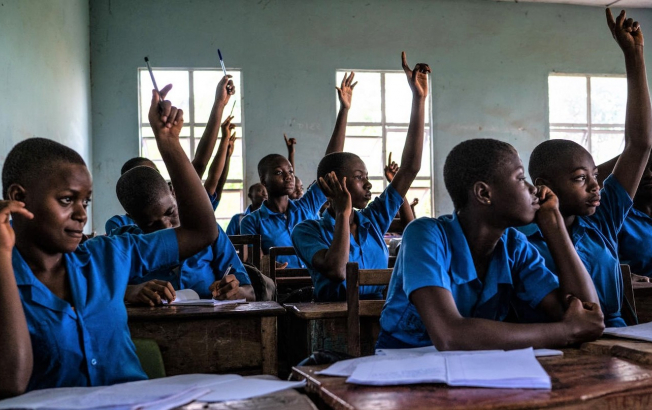In a detailed quarter-by-quarter analysis of data obtained from the National Bureau of Statistics (NBS), Infostride News reveals that educational institutions in Nigeria experienced a significant increase of 42% in taxes paid by the third quarter of 2023. This upward trend in taxation comes at a time of growing apprehension regarding the escalating cost of education in the country, potentially exacerbating the issue of out-of-school children in Nigeria.
The analysis conducted by Infostride News encompasses both Value Added Tax (VAT) and Company Income Tax (CIT). By the third quarter of 2023, educational institutions had contributed a total of N13.82 billion in taxes, reflecting a substantial 42% surge compared to the N9.76 billion recorded in the second quarter of the same year. Furthermore, on a year-on-year basis, there was a noteworthy increase of 34% from the N10.3 billion reported in the third quarter of the previous year.
The breakdown of the analysis underscores that the surge in taxes is more pronounced in CIT than in VAT. The Federal Inland Revenue Service (FIRS) clarifies that CIT, a 30% tax imposed on the profit of companies, and VAT, a 7.5% consumption tax paid on goods and services, are integral components of the tax landscape.

VAT Payment Upswing
During the third quarter of 2023, FIRS collected N6.82 billion as VAT from educational institutions, signifying a substantial increase of 26.92% from the N5.38 billion collected in the preceding quarter. Moreover, this amount represented a 26.31% increase from the N5.4 billion collected in the same quarter of the previous year. VAT accounted for 49% of the total taxes collected by FIRS from educational institutions by Q3 2023, with CIT showing the most significant increase.
CIT Collection Peaks
The collection of CIT surpassed that of VAT, with FIRS securing approximately N7 billion from educational institutions. This amount marked a notable 59.6% increase compared to the N4.39 billion recorded in the second quarter of the same year and a substantial 42.89% increase from the N4.9 billion collected in the third quarter of 2022.
Escalation in Education Inflation
A comprehensive analysis by Infostride News further indicates that Nigeria’s education inflation rate reached 21.07% in October 2023, according to the most recent Consumer Price Index (CPI) report released by the NBS. The education index exhibited a year-on-year increase of 21.07% in October, showing a slight 0.29% point decrease from the 21.36% recorded in the previous month. Notably, the education index experienced consistent growth throughout the year, except for declines recorded in July and August during the extended school holidays.
Insight into Rising Concerns
Amidst these developments, concerns have been mounting over the affordability of school fees, particularly in public tertiary institutions. Numerous public universities in Nigeria raised fees for the 2023–2024 academic year, citing the current economic climate and the imperative to meet stakeholder and student obligations amidst rising living costs. This trend also extended to secondary schools, where fee increases were observed.
Infostride News found that institutions such as the University of Lagos, University of Maiduguri, University of Nigeria, Nsukka, Niger Delta University, Kwara State University, and the National Open University implemented significant fee hikes. This surge in fees has already led to disruptions in the studies of several financially disadvantaged students in Federal Government-run universities, with institutions imposing increases ranging from 100% to 200%. The All-Africa Students’ Union (AASU) and Nigeria’s Academic Staff Union of Universities (ASUU) have raised concerns about the widespread escalation of school fees, urging the Federal Government to review these increases for the overall development of Nigeria’s youth.
In light of these developments, Infostride News remains committed to providing in-depth coverage and analysis of the evolving landscape of education in Nigeria.
Support InfoStride News' Credible Journalism: Only credible journalism can guarantee a fair, accountable and transparent society, including democracy and government. It involves a lot of efforts and money. We need your support. Click here to Donate
